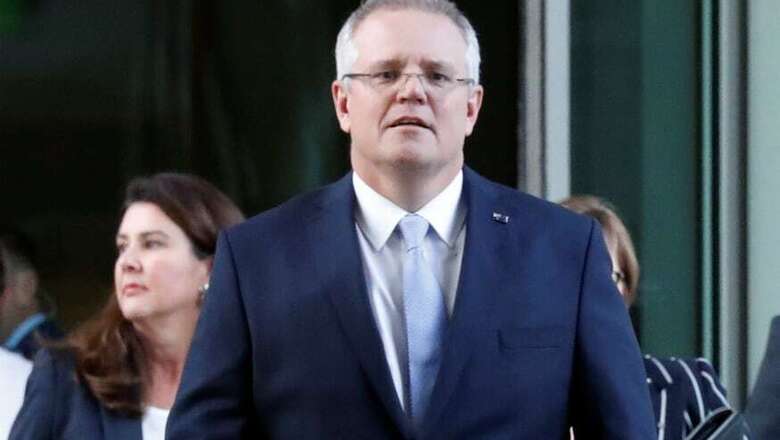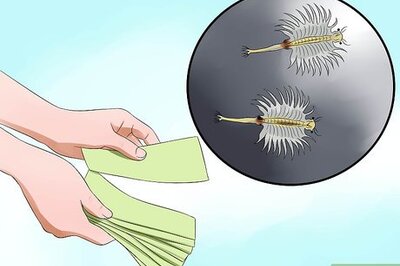
views
Sydney: Australia's Prime Minister Scott Morrison on Thursday called a national election for May 18, firing the starting gun on a campaign set to focus heavily on climate and the economy.
"We live in the best country in the world," Morrison said making his announcement, arguing "our future depends on a strong economy." The announcement officially kicks off a campaign to decide whether the conservative government gets a rare third term in office and whether Morrison can beat the odds and hang on to power.
Polls have consistently shown his opponents in the centre-left Labor party hold a commanding lead, pointing to a new government led by former union leader Bill Shorten.
But Australian elections are often tight affairs, with a couple of dozen marginal seats deciding the outcome. And both party leaders have low approval ratings.
For all purposes, campaigning is already well underway and has already been deeply acrimonious.
Election ads have been running for weeks, and - like the United States - Australian politics has taken on the air of a permanent campaign with the focus on how policies will play with voters as much as how well they work.
Until now, the two parties have been trying to shape the terrain the election will be fought on, with Morrison - who took office less than a year ago in a party coup -- trying to put the focus squarely on the economy.
On the eve of the election announcement, Morrison posted a slickly produced video of him and his family, urging voters to keep on the current track.
"The real question is what country do you want to live in for the next ten years," he said.
Last week he released a budget replete with tax cuts designed to woo voters and a budget surplus projected for the first time in more than a decade.
Since then, any opportunity in front of a camera or microphone is an opportunity to repeat the claim that a Labor government would destroy jobs and businesses.
In truth, after 27 years of growth, the Australian economy is facing increasing headwinds, and whoever wins power is likely to contend with a less favourable outlook.
Labour for its part has zeroed in on centrist voters frustrated that they elected a moderate in former prime minister Malcolm Turnbull only for the Liberals to swap horses midstream to the more hardline Morrison.
In a first campaign message, Shorten said only Labor could offer every Australian a "fair go." They have
tried to paint Morison as a hardline friend of the wealthy and culturally out of touch, while promising the coal-rich country will shift to electric cars and renewable energy.
The environment is not just an issue in the wealthy suburbs.
Farms - always hard to run on the country's difficult soil and unforgiving climate - now have to contend
with record droughts, followed by brutal bushfires, followed by record floods.
The 50-year-old prime minister's policies on climate change and immigration are deeply unpopular, but coalition partners and hardliners within his party have forestalled any shift to the centre.
But Morrison will be hoping that conservative rural voters, urban voters frustrated with more crowded and more expensive cities and a fiercely negative campaign can carry him over the line.















Comments
0 comment